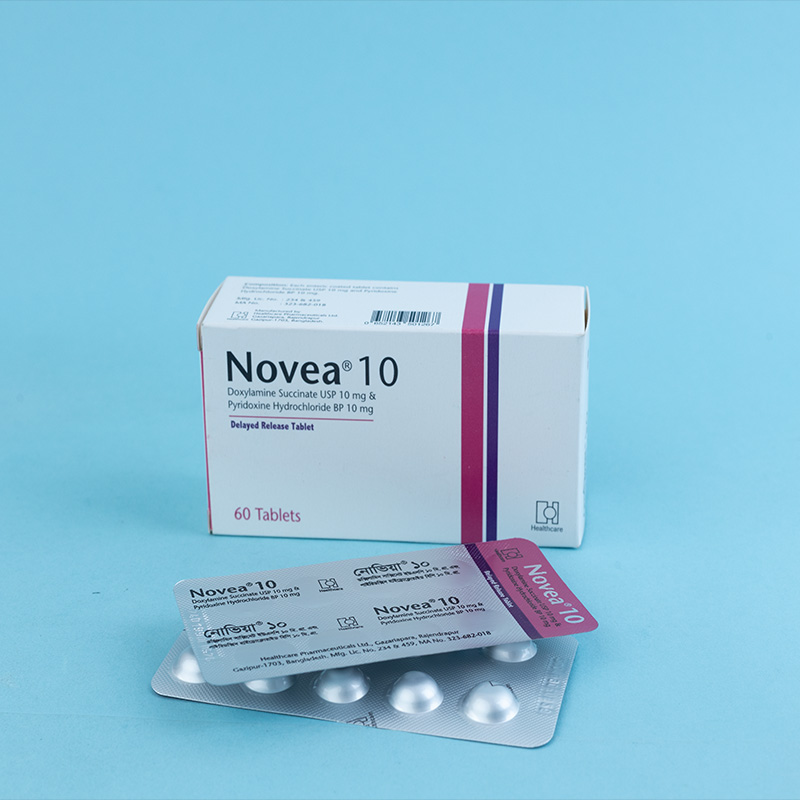Nausea, vomiting, motion sickness, vertigo, morning sickness in pregnancy.

The fixed-dose combination (FDC) is recommended for oral administration.
Nausea & Vomiting (including morning sickness in pregnancy): One tablet 1-2 times daily or as directed by the physician.
Motion Sickness: The initial dose is one or two tablets daily. It should be taken one hour prior to the journey for protection against motion sickness. The dose may be repeated every 24 hours as indicated for the duration of the journey.
Vertigo: One tablet twice daily or as directed by the physician.
Labyrinthine and Vestibular Disturbances: The optimal dosage of Meclizine is usually 25 to 100 mg daily in divided doses, depending on the clinical response.
Radiation Sickness: 50 mg (Meclizine) should be administered 2 to 12 hours prior to radiation treatment.

Drowsiness, dry mouth, urinary retention, or, on rare occasions, blurred vision have been reported.

Due to its potential anticholinergic action, patients with asthma, bronchitis, emphysema, enlarged prostate, glaucoma, or urinary tract blockage should take Meclizine (like other antiemetics) with caution. Patients should avoid alcoholic beverages while taking this drug.
Meclizine: Dosage varies from 25-50 mg per day in pregnancy or as directed by a physician. It is not recommended in the last two weeks of pregnancy due to the risk of retrolental fibroplasia.
Pyridoxine: 75 mg per day is FDA-approved for use in pregnancy. Pregnant and breastfeeding women should not take more than 100 mg per day without a doctor's supervision.

Epidemiological studies with Meclizine and Pyridoxine in women experiencing nausea and vomiting during pregnancy have revealed no evidence of teratogenic effects attributable to the drug. Although Meclizine may be excreted into breast milk, it causes no harm to nursing babies.
Meclizine: Pregnancy category B. Large-scale human studies have not demonstrated adverse fetal effects. Based on available data, Meclizine presents the lowest risk of teratogenicity and is considered the drug of first choice in treating nausea and vomiting during pregnancy.
Pyridoxine: Pregnancy category A. Pyridoxine itself is considered safe during pregnancy and has been used in pregnant women without any evidence of fetal harm.

Meclizine Hydrochloride and Pyridoxine Hydrochloride are contraindicated in individuals who have shown a previous hypersensitivity to these ingredients.

Meclizine may increase toxicity when combined with CNS depressants, neuroleptics, and anticholinergic agents. Alcohol, sedatives, and tranquilizers can increase drowsiness in patients.

Symptoms: Extreme excitability, seizures, drowsiness, temporary nerve damage, and hallucinations.
Treatment: Appropriate supportive and symptomatic treatment.

Store in a cool and dry place below 30ºC. Protect from light.
Medicine: Keep out of reach of children.





